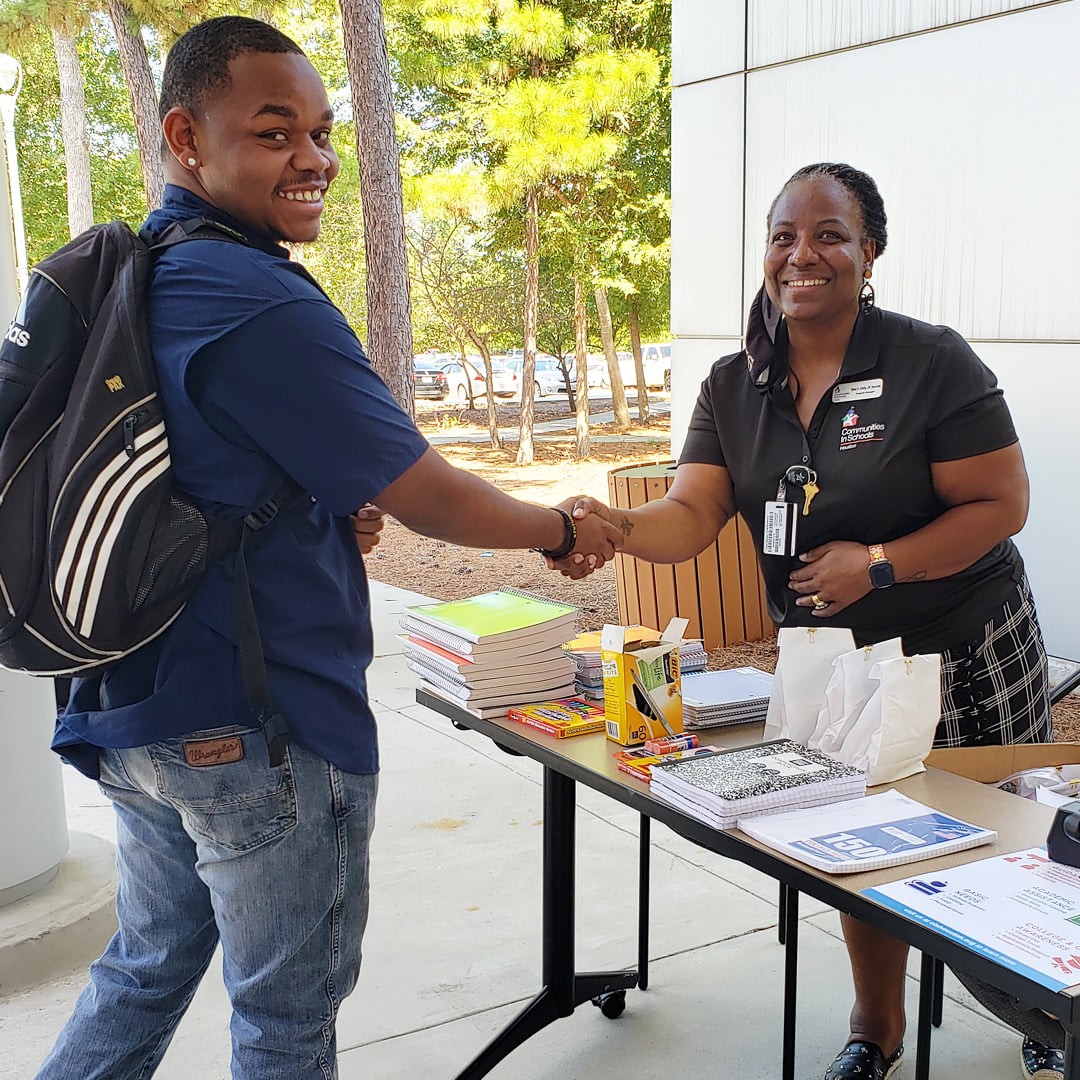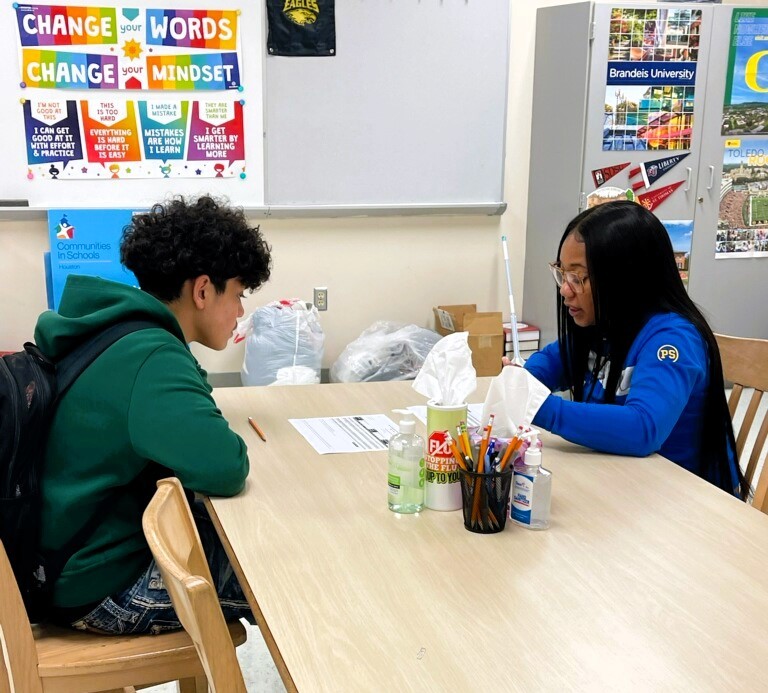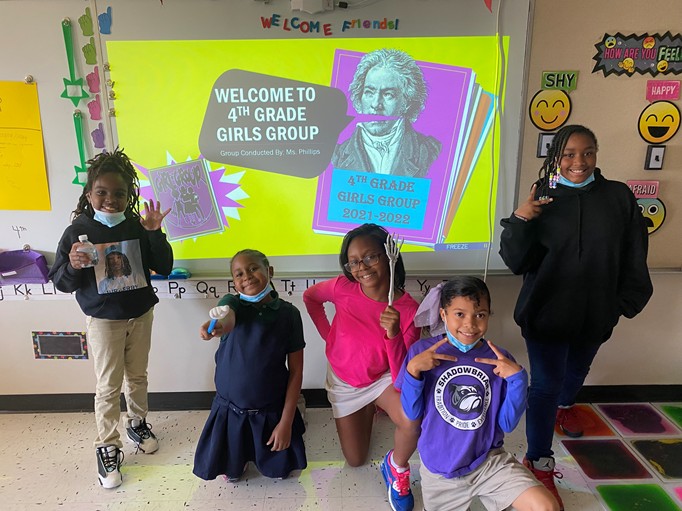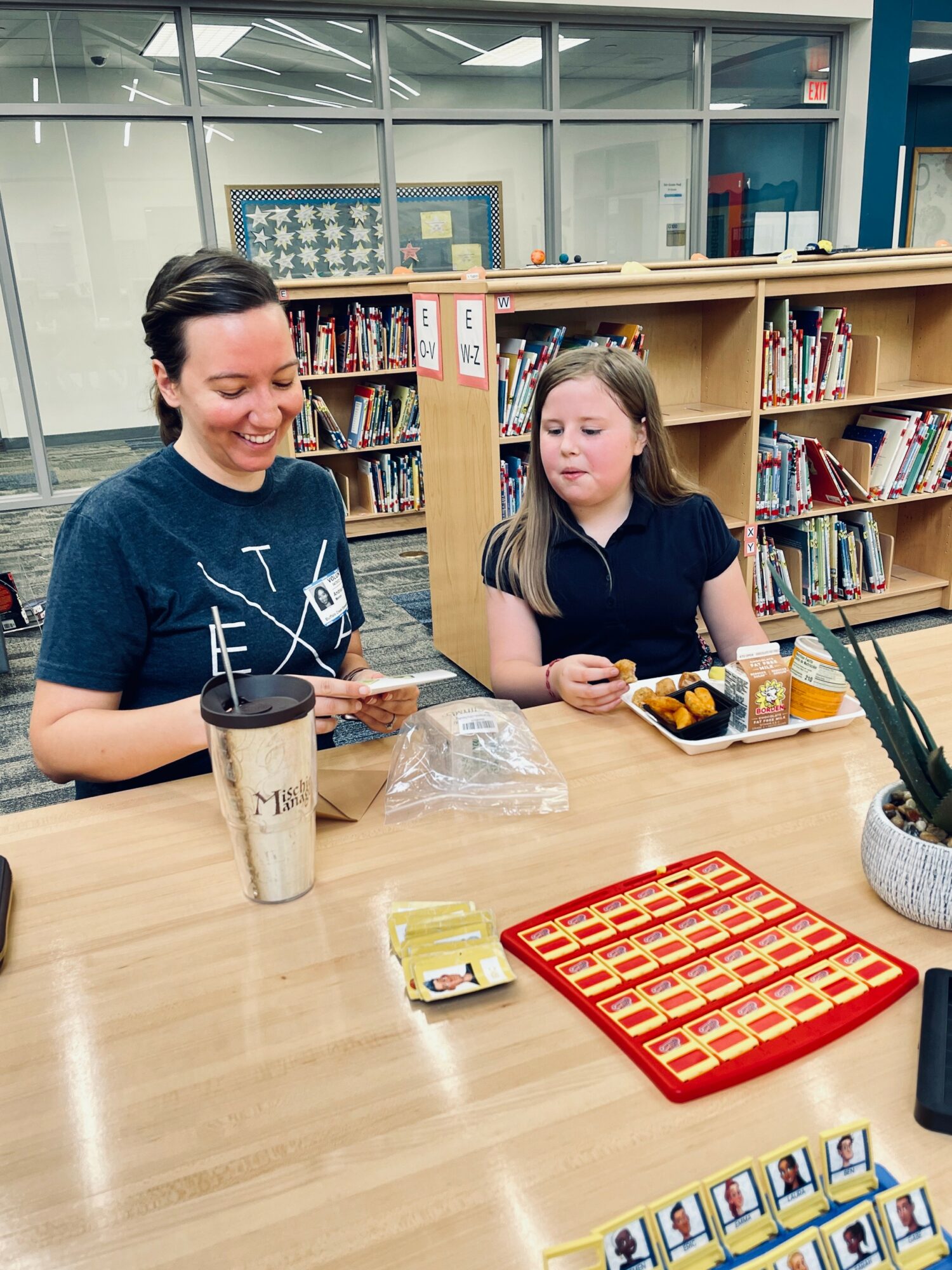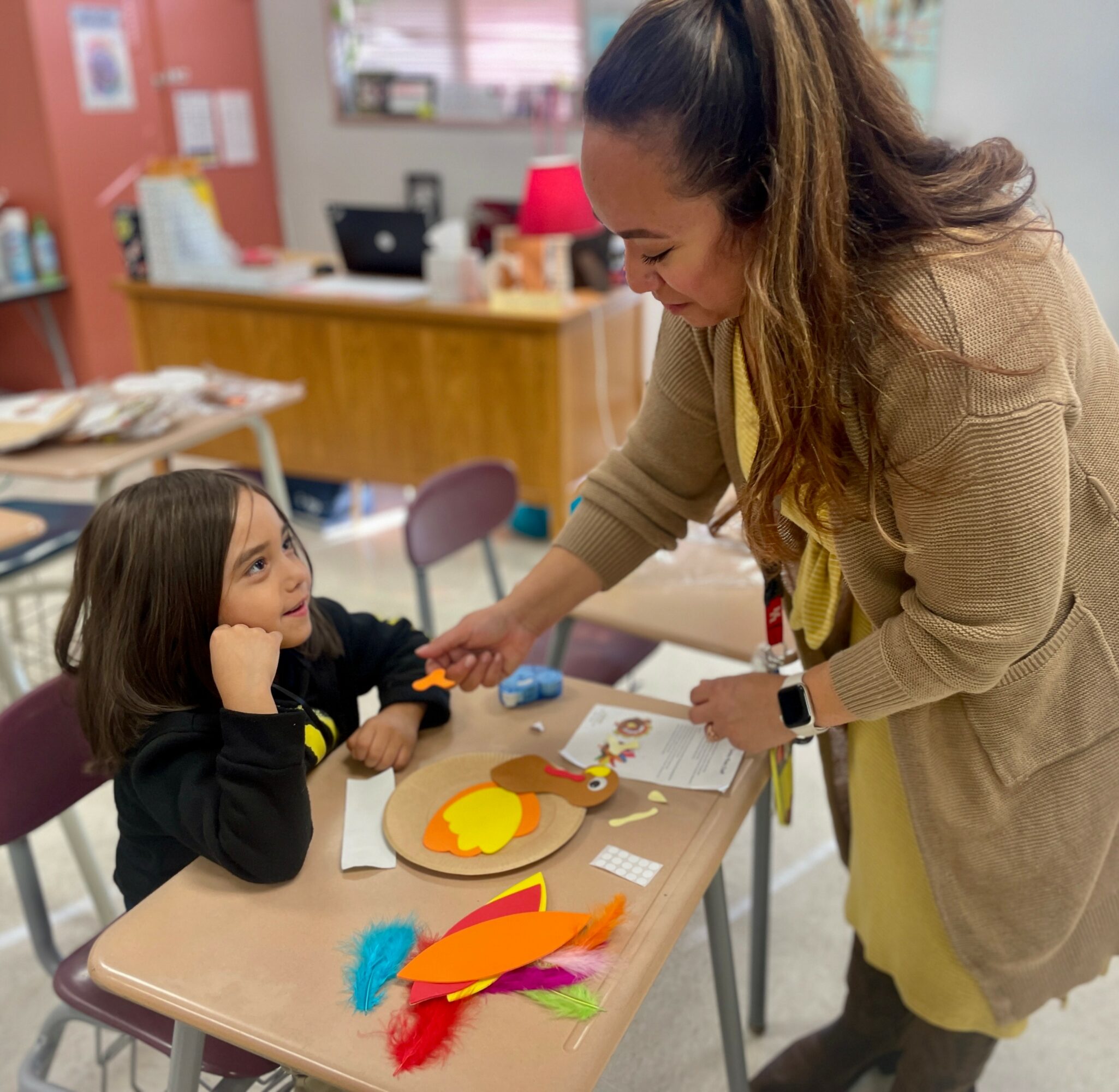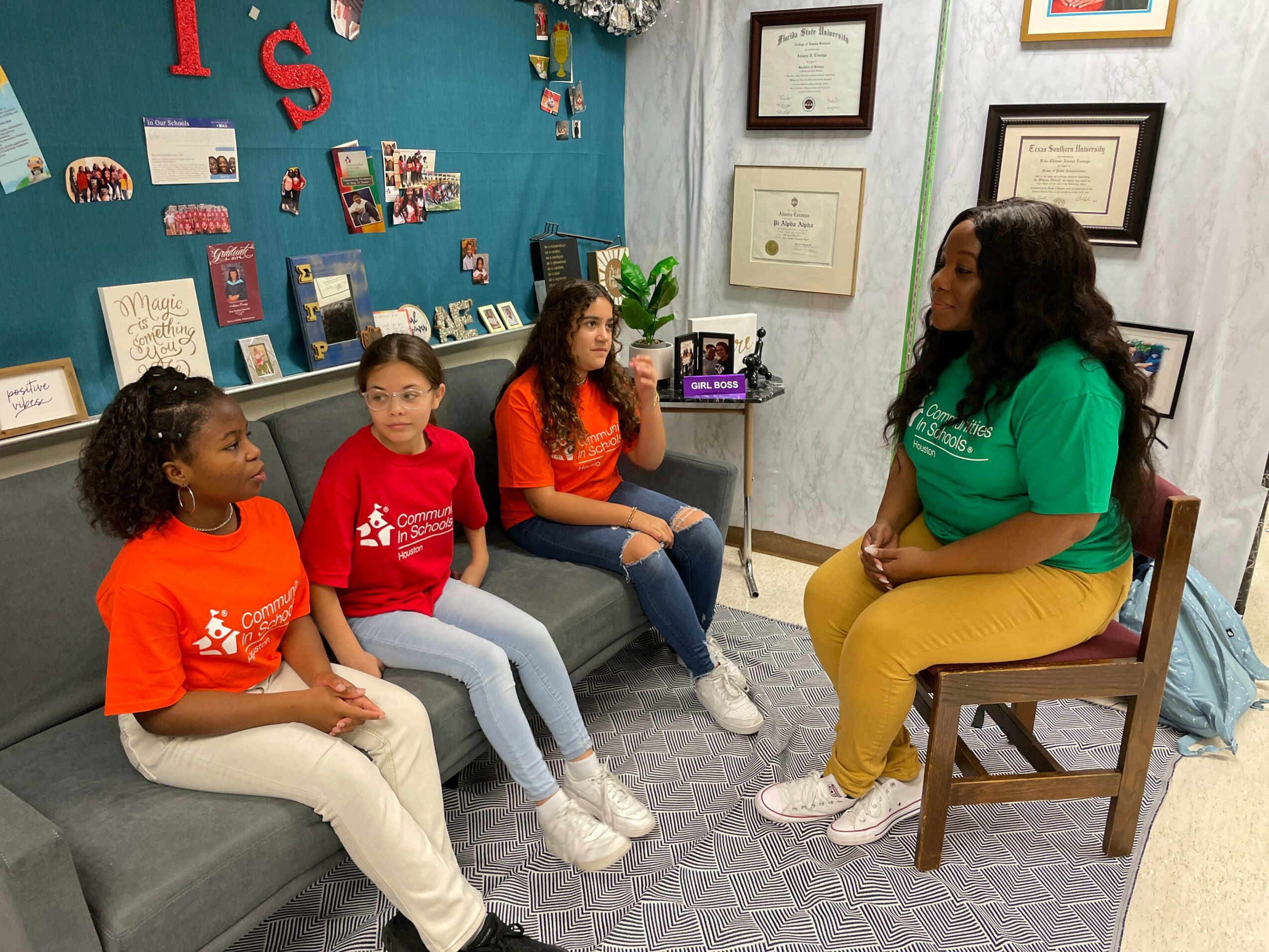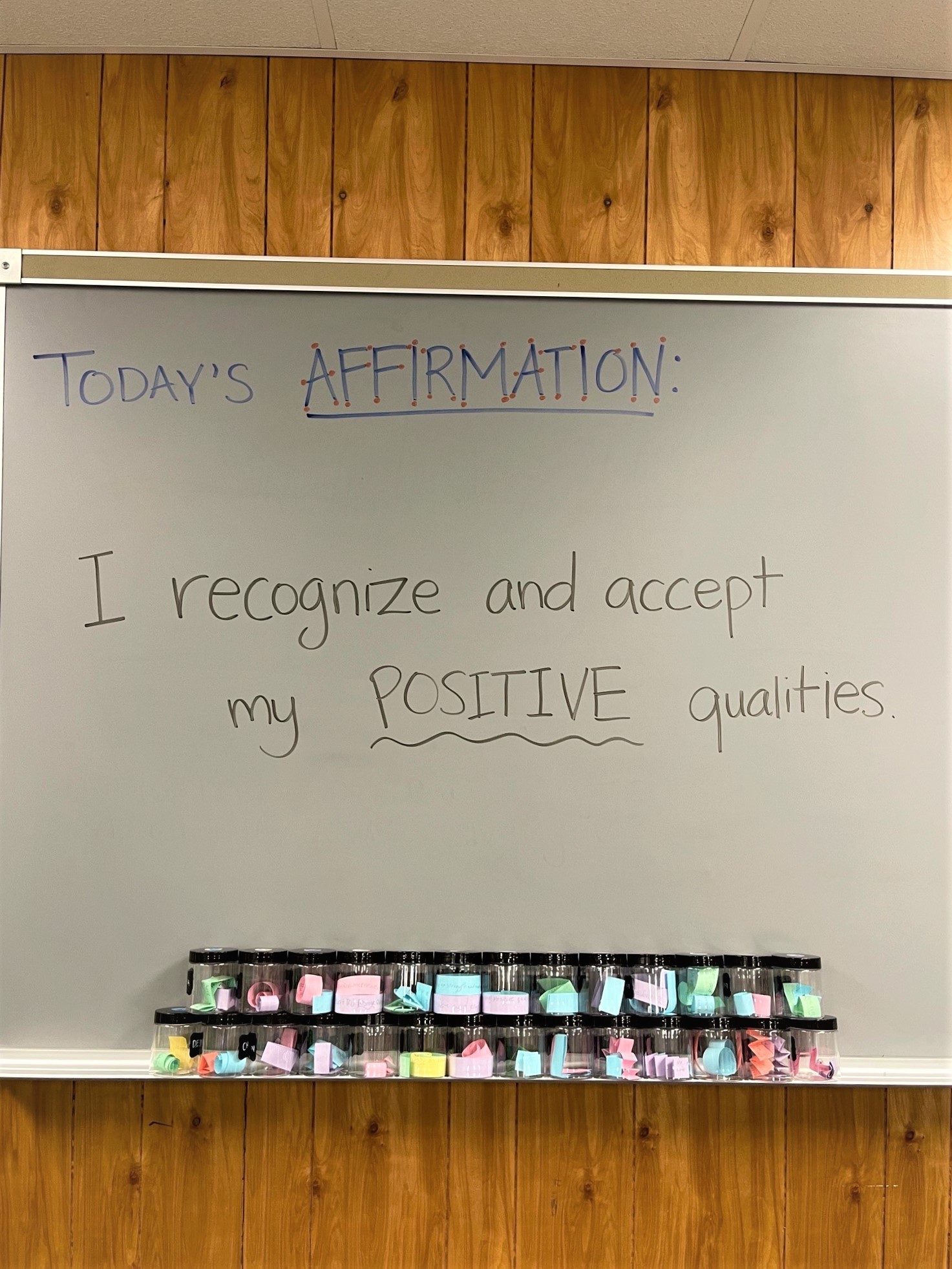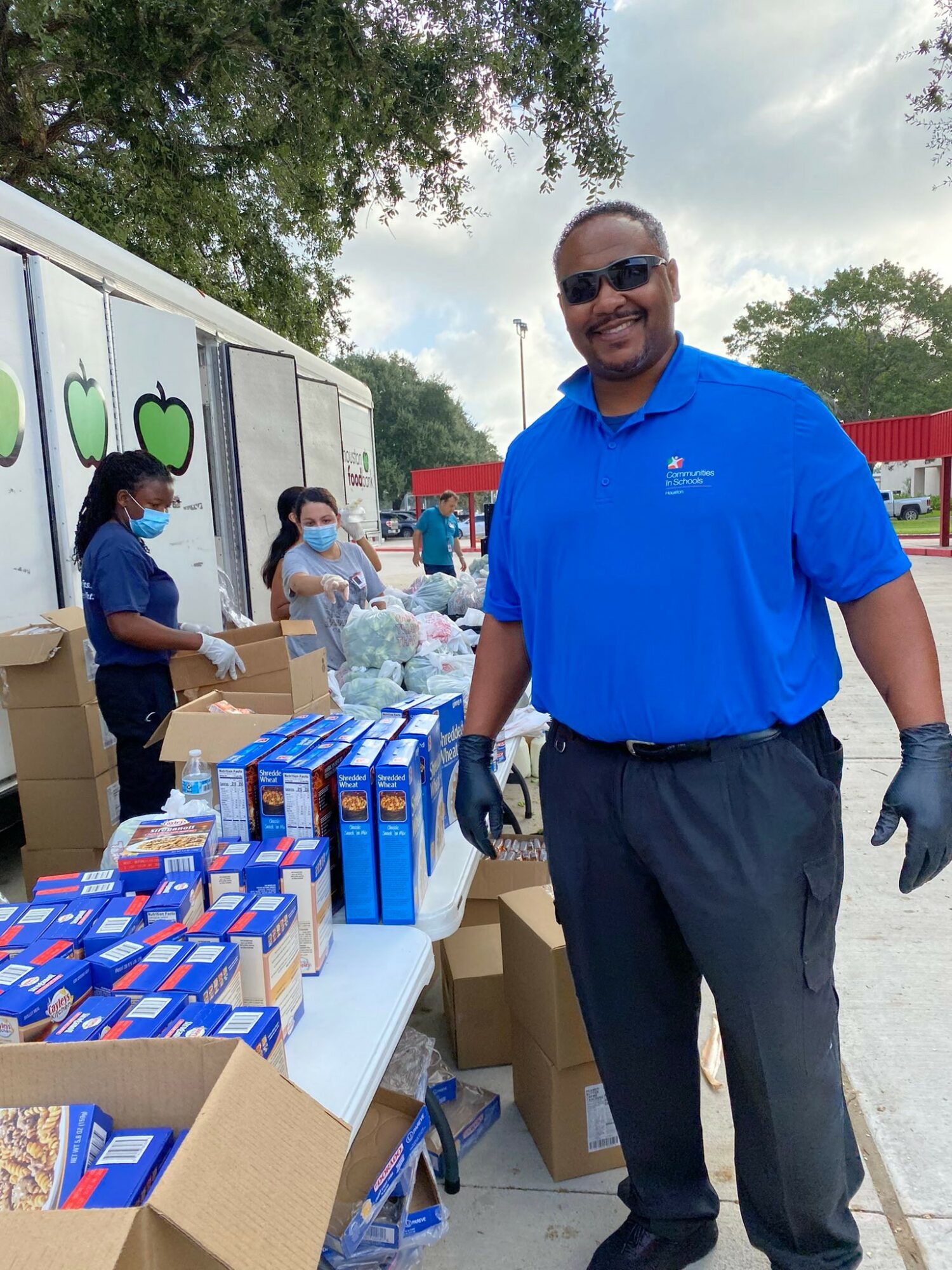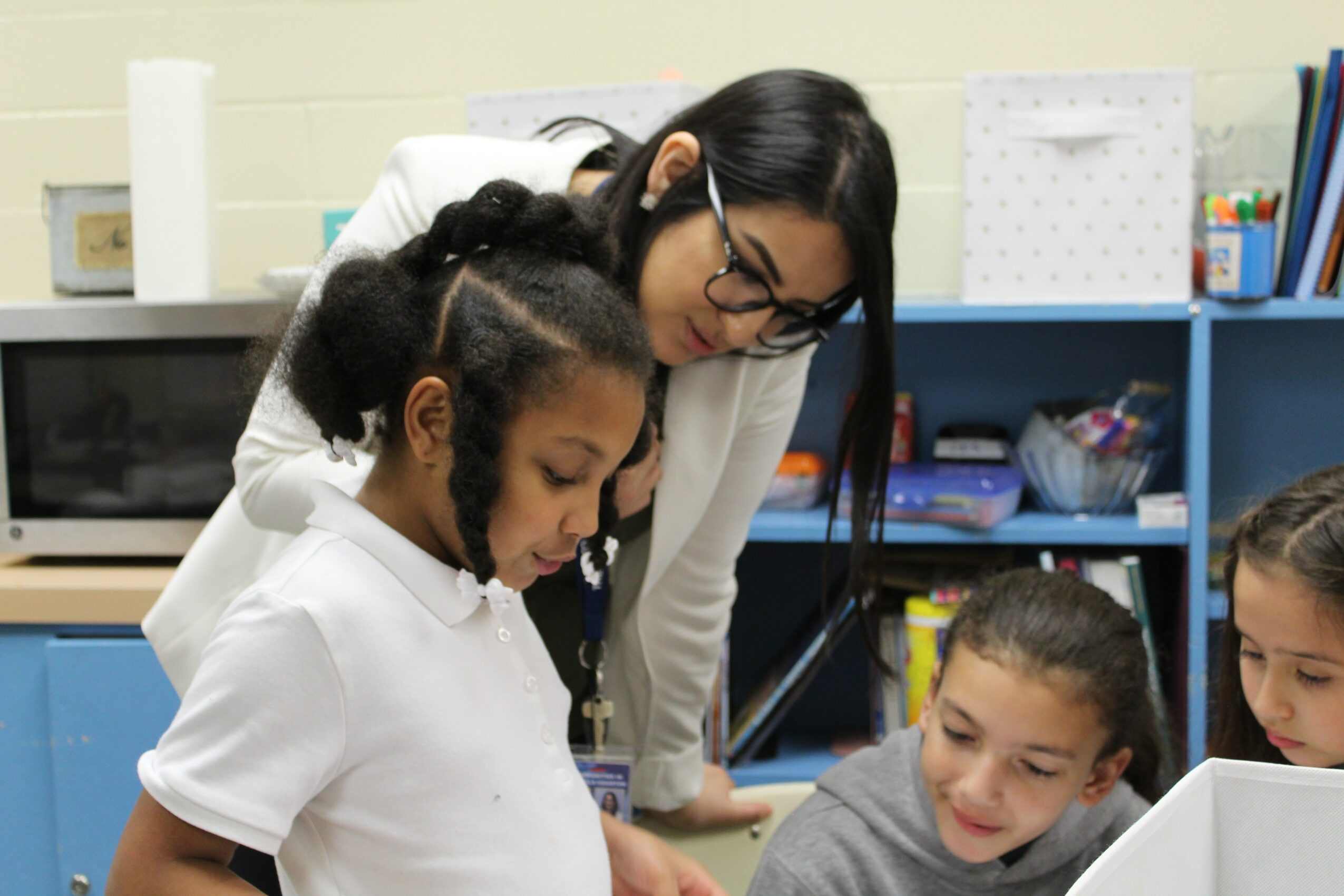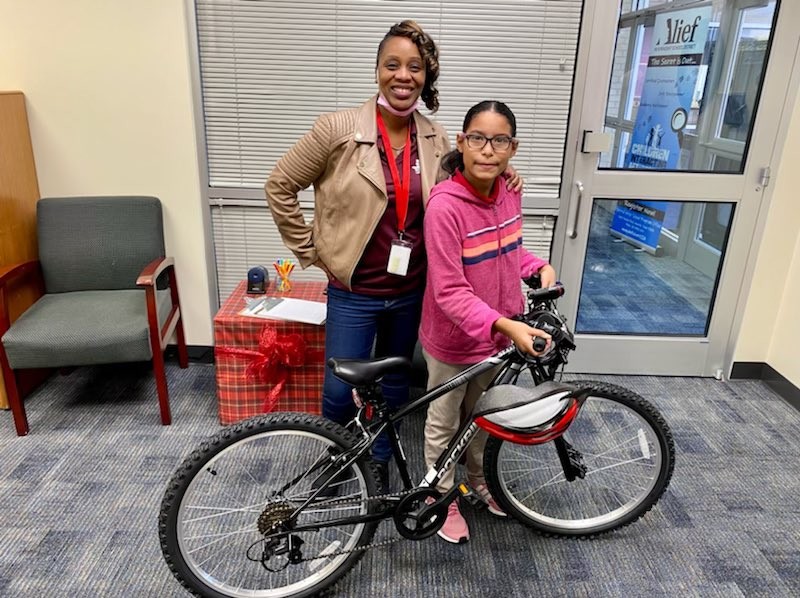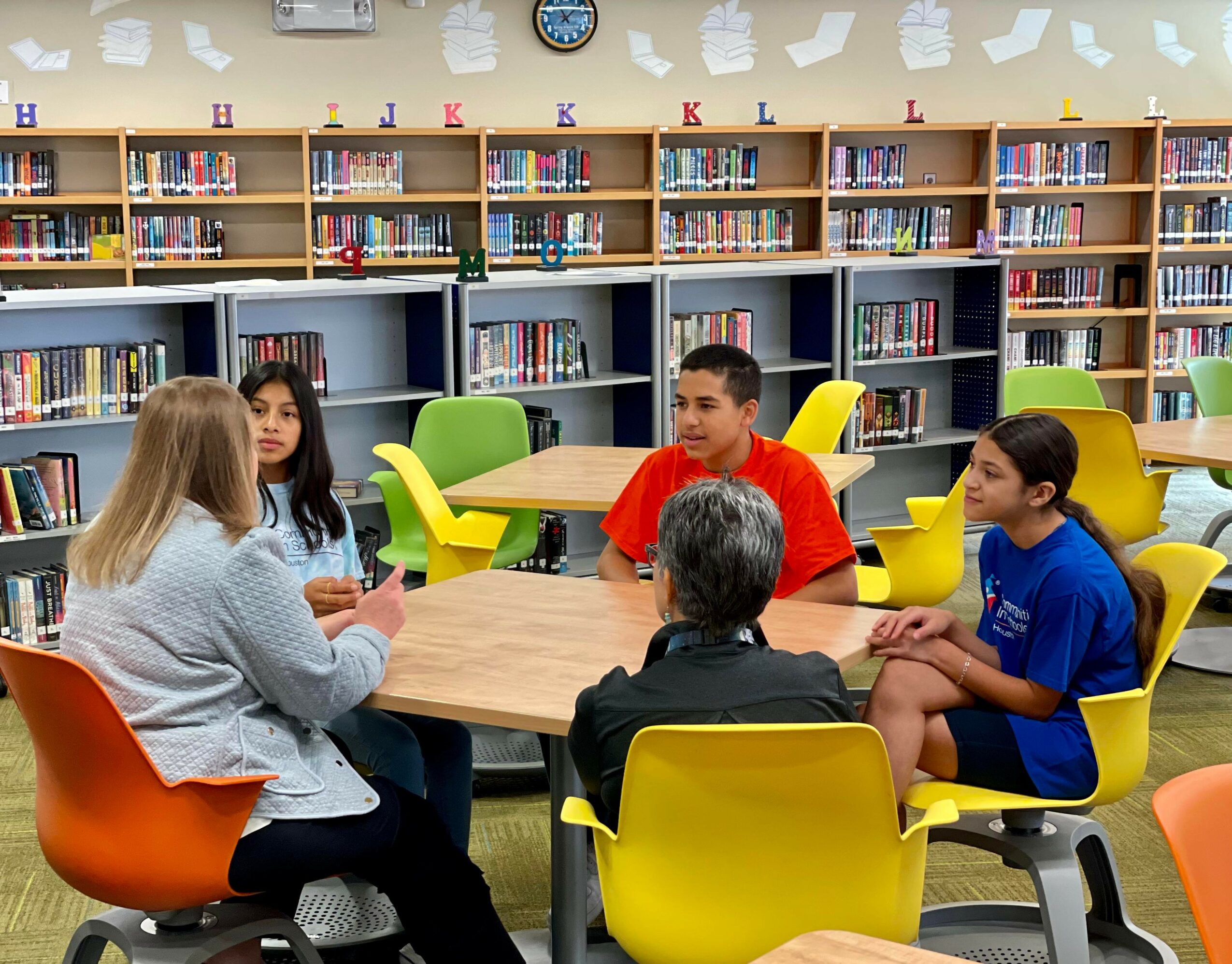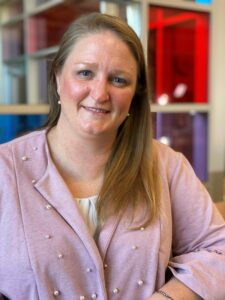 Today we’d like to introduce you to Lisa Descant.
Today we’d like to introduce you to Lisa Descant.
Hi Lisa, thanks for sharing your story with us. To start, maybe you can tell our readers some of your backstory.
I joke that I have grown up in Communities In Schools (CIS), though the world of nonprofits was not my original design for a career path. My declared major as a Freshman at the University of Texas (UT) was civil engineering. Graduating from high school with strength in math and science and following in the footsteps of my two grandfathers, engineering made some sense. However, along the way, I felt pulled toward the classes offered within the College of Liberal Arts – particularly those with a focus on Latin America. At the same time, I joined a co-ed service fraternity, Alpha Phi Omega, and I completed hundreds of volunteer hours across Austin.
Volunteering exposed me to many types of nonprofit organizations and, eventually an employment offer with The Boys & Girls Clubs of Central Texas (B&GC). I switched my major to Latin American Studies and worked for the B&GC for my last few years of college. B&GC had an afterschool partnership with Communities In Schools of Central Texas which is where I was introduced to CIS. After graduating from UT, I joined CIS as a Case Manager at a middle school in Austin ISD. During that year, my CIS supervisor was a Licensed Professional Counselor, so she exposed me to that professional path.
After a school year there, I relocated to Houston and joined CIS of Houston as a Student Support Manager at an elementary school in Houston Independent School District (HISD). Two years later, I made a lateral move to the high school in the same HISD feeder pattern. During those years, I pursued a master’s degree in psychology and subsequently became a Licensed Professional Counselor and Licensed Marriage and Family Therapist.
Quite unexpectedly, I received a call one day from our then-CEO, Cynthia Clay Briggs. She let me know that a position was becoming available in our Central Office, and she wanted me to consider the role. It would remove me from direct service with students, which was by far the biggest downside. By this time, I had been working directly with students on campus daily for nine years. The relationships with students and their families were a huge source of meaning in my life. The new role, though, would enable me to support the work of CIS for hundreds of thousands more students. After serious consideration, I agreed to the role Director of Quality and Standards, which was responsible for documentation, data collection, and reporting.
Operating in this role for six years, afforded me the opportunity to interact with every department and facet of our large nonprofit organization. I gained a greater sense of perspective on the systems, processes, people, and partners that enabled CIS to thrive. As the need for a Chief Operating Officer evolved within our organization, I was positioned well to take on that role. After nearly three decades as CEO, Cynthia announced her plan for retirement, and the Board launched a national search to find her successor. Along with numerous talented internal and external hopefuls, I threw my resume and cover letter into the mix. After a deliberate, year-long process, the Board voted unanimously to invite me in as CEO in 2019.
Five years later, I could not be more proud to lead CIS. As a young college student, I didn’t see this career trajectory for myself. I really didn’t know it existed. But I continued to keep possibilities open and explore what gave my life purpose. Each step of the way with CIS challenged me to grow professionally and filled me with more and more certainty that what I am doing makes this world a little better for one student at a time.
Would you say it’s been a smooth road, and if not, what are some of the biggest challenges you’ve faced along the way?
In retrospect, the road to today seems more smooth than not. The struggle for me was probably in the lack of specific direction or uncertainty about end goal. The consistent theme for the last 20 years has been wanting to be of help and support to others – students, colleagues, and community partners. Having that drive as my north star for decision-making has been very helpful. And then creating opportunities and keeping possibilities open were a couple of my keys to success. For example, opting into volunteer roles and additional projects or intentional follow-up to establish strong relationships with professional counterparts were actions that I can see now have really prepared me for various roles over the years.
We’ve been impressed with Communities In Schools of Houston, but for folks who might not be as familiar, what can you share with them about what you do and what sets you apart from others?
Who we are; what we do
Communities In Schools of Houston is an educational nonprofit that empowers every student, regardless of race, zip code, or socioeconomic status, to realize their potential in school and beyond. To support this mission, CIS places at least one full-time Student Support Manager on each partner campus to deliver direct services and to connect students and families with needed community resources.
Communities In Schools of Houston knits together a powerful network of partners—volunteers, social service agencies, educators, and mental health providers. In 2022-2023, CIS collaborated with more than 350 partner agencies to help students in elementary, middle, and high school overcome barriers to success and connect to needed resources.
For 45 years, CIS of Houston has demonstrated measurable success in student outcomes. The agency is a recognized leader in understanding and evaluating what is needed to increase student success in our schools. In the 2022-23 school year, we served more than 174,000 students. Our statistics reveal that our methods are working:
o 99% of students in grades 7-12 stayed in school
o 98% of seniors graduated
o 96% of students were promoted to next grade level
o 86% of students showed marked improvement in academics, attendance, and/or behavior
Our name says a lot about our branding. We truly create a community of support within each school that we serve. We take our work seriously and strive to provide a holistic model of services to students and parents. If students are strong academically and have good mental health supports and parents have access to resources, then the community itself will be more resilient.
What differentiates us
Our Integrated Student Supports Model is a proven, evidence-based approach to develop academic success by assessing a student’s needs on the school campus and then providing direct services and/or referrals to community partners to ensure a student has the resources they need to succeed in and out of the classroom.
Fulltime CIS Student Support Specialists are embedded on 163 campuses in six school districts (Aldine, Alief, Fort Bend, HISD, Spring and Spring Branch), including 16 Lone Star College campuses to deliver Integrated Student Supports in three tiers:
• School-wide services
• Targeted programs
• Individualized support.
I also think the depth and breadth of our services makes us unique, including our Mental Health Initiative, the new Sunrise Centers initiative, and our workforce readiness programs, which provide opportunities for students to be introduced to potential career fields.
• Mental Health Initiative (MHI)
For the past 45 years, supporting students’ mental health and well-being has been at the core of what we do. CIS of Houston formally launched its Mental Health Initiative (MHI) in 2012 on five campuses and is now the largest provider of mental health services for schools in the Harris County area. With the MHI, CIS has been able to implement targeted efforts to collectively address the growing mental health needs on CIS campuses.
The MHI provides students with trauma-informed interventions that alleviate emotional and behavioral challenges, enhance coping skills, improve student emotional and physical health, and in turn, academic achievement. Students in need of counseling services are identified by referrals from school principals, teachers, parents, peers, and CIS staff.
In the 2022-2023 school year, CIS Mental Health Professionals served 7,569 students, and CIS mental health partners served 642 students on 100 campuses, totaling 25,740 hours of mental health support for our students.
• HISD Sunrise Centers
The 45-year partnership between HISD and Communities In Schools of Houston continues. HISD is opening six Sunrise Centers for those students needing additional mentoring in order to succeed. CIS will bring student-centered case management and mental health support to students most in need at these Sunrise Centers. In addition to our presence in the six centers, we continue to work with students on 42 HISD campuses.
• Workforce Readiness – Law and Healthcare
1. The Houston Bar Association/CIS Summer Legal Internships: Law firms, corporate legal departments, and public-interest agencies provide paid internships to high school juniors and seniors in a workforce readiness program where they receive mentoring and on-the-job experience for eight weeks to broaden their visions of career opportunities.
2. The CIS Nursing Externship Program has two components:
o Houston Methodist Hospital offers high school seniors with an eight-week paid Patient Care Assistant (PCA) Summer Externship program upon graduation, which required a 40-hour work week.
o Smithwood Medical Institute provides an evening school program to seniors for the Certified Nursing Association (CNA) Certification, qualifying them to be employed in the nursing field.
Community Outreach
The CIS Project MOVE Dental Program, in partnership with UTHealth Houston School of Dentistry, offers CIS students free preventative and restorative dental care and oral health presentations. This includes emergency restorative care, dental cleaning, X-rays, fluoride treatment, and sealants. The School’s Give Kids a Smile Day donates free dental healthcare to underserved children in the Houston community.
Fundraising
In the past fiscal year, CIS of Houston raised nearly $4.6 million from foundations, corporations, individuals, and public funding for CIS programming on campuses. Additionally, it received more than $2.1 million in goods and services in combined campus donations and support. The organization is on solid financial footing due to the support of donors and in-kind service providers.
We are also proud to be the recipients of a 2022 donation from philanthropist Mackenzie Scott in the amount of $13 million, the largest single donation in our history. We will be good stewards of this gift over an eight-year period, with the majority of the grant going toward direct delivery of services to students we serve in all of our schools.
Any advice for finding a mentor or networking in general?
Professional relationships in the form of mentoring and networking have been very important to me, but I would add that professional peer relationships have also been key.
The people who I would refer to as mentors may not know they served that purpose. I have not had a defined mentor relationship. However, I have been extremely fortunate to have people in my professional life who have provided me with guidance and support in different seasons of my life. The advice I would give to someone seeking out a mentoring relationship is to identify people two or three steps ahead of you professionally or better yet, if you know your end goal, identify people already in those roles. In other words, look for people who have already gathered experience and wisdom in the path you are pursuing. Consider if that person can set aside their own personal agenda and offer to meet you exactly where you are and encourage you from there, offering their wisdom and experience for your benefit, not for their agenda or gain. Consider a person who thinks somewhat differently than you so that you are challenged with new ideas and new ways of approaching situations. Finally, be sure you are spending time with people who will tell you the truth, even if it isn’t what you want to hear.
In the last several years, I have joined a few professional network opportunities – Center for Houston’s Future and American Leadership Forum. I have also maintained relationship with my peer learning group from a nonprofit executive leadership course at Harvard Business School. Our small group of eight is comprised of nonprofit leaders from California, Wisconsin, Connecticut, New Jersey, Texas, the United Kingdom, India, and Australia, and we have been meeting virtually on a monthly basis for years now. Each of these groups has offered important elements of routine gathering, diversity of background and interest, and shared commitment to community building. I have found that each group or networking is experience is dependent on what I put into it, so it has been important that I commit to these opportunities at times when I can give it my all.
And the last element in the bucket of mentoring and networking that I think worth noting is that of professional peer relationships. These are the colleagues who are doing similar work, some in my organization or others in adjacent organizations, who I can call at the end of a terrible day and who I can count on to celebrate my mountain-top moments. They understand the nature of my work and the environments in which I work. These people have been critical to my ability to make it through challenging times and my ability to reflect and enjoy all the good along the way.
Contact Info:
- Website: www.cishouston.org
- Instagram: www.instagram.com/cishouston
- Facebook: www.facebook.com/cishouston
- Linkedin: https://www.linkedin.com/company/cishouston/
- Twitter: www.twitter.com/cishouston
- Youtube: https://www.youtube.com/channel/UCY9DTxbIUaocxNeMIvIicEg
